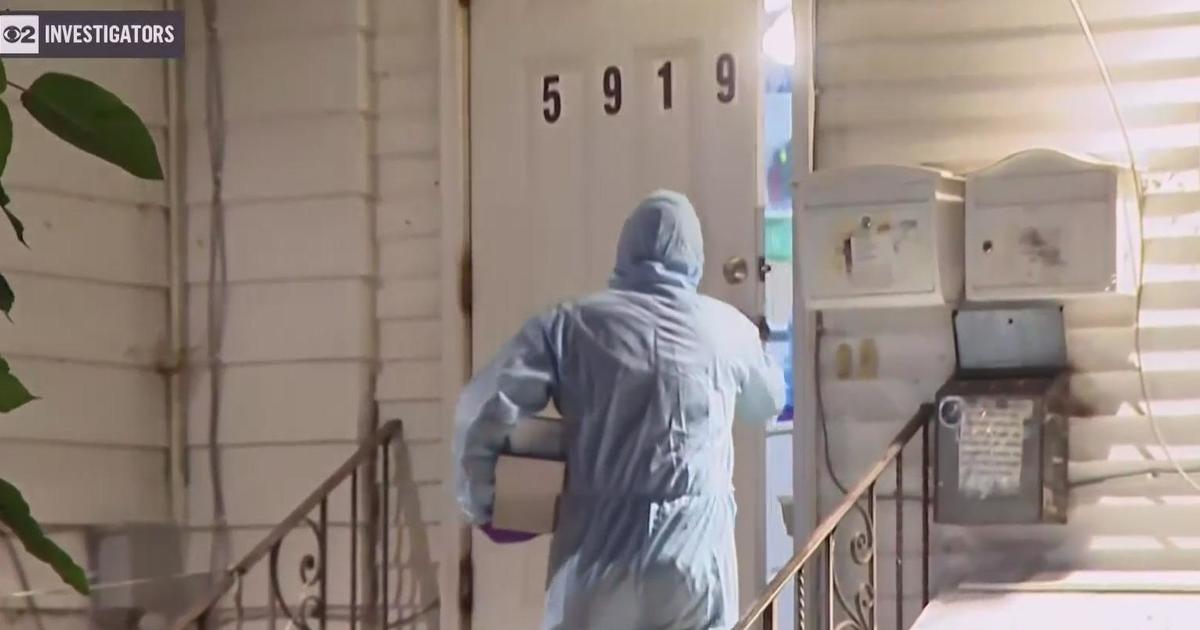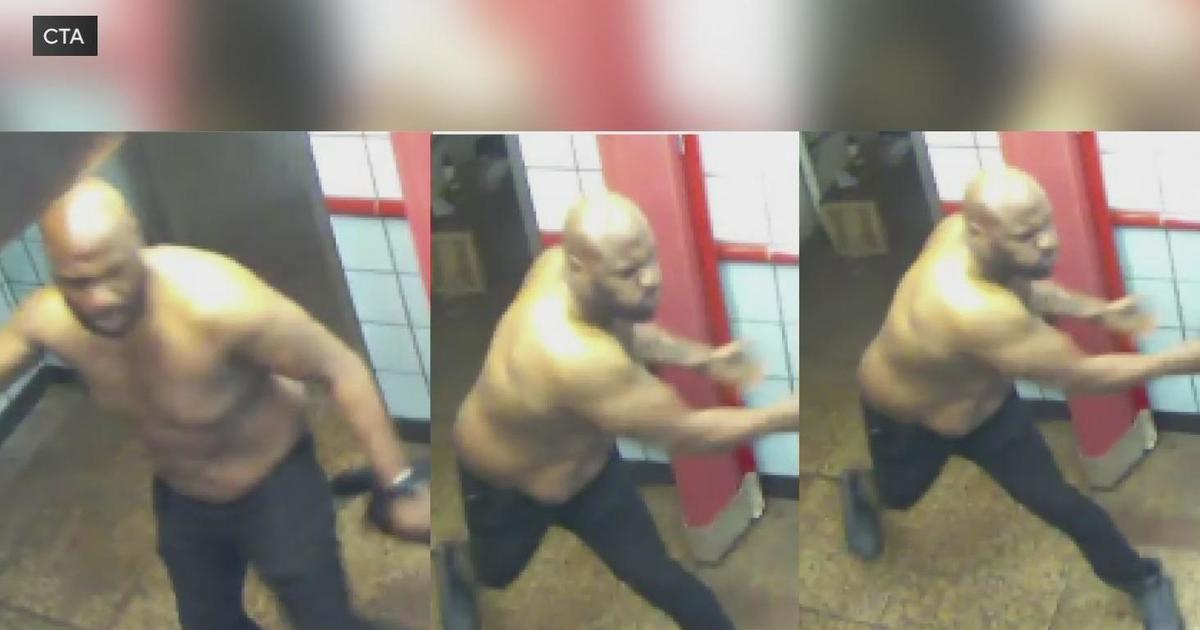Prosecutors Begin Cross-Examining Blagojevich, Call Him A Liar
UPDATED 06/02/11 6:35 p.m.
CHICAGO (CBS) -- Federal prosecutors wasted no time painting Rod Blagojevich as a habitual liar on Thursday as they began cross examining the former governor at his corruption retrial on Thursday.
"Mr. Blagojevich, you are a convicted liar, correct?" Assistant U.S. Atty. Reid Schar asked, shedding his normally reserved manner and raising his voice in anger.
After U.S. District Judge James Zagel overruled an objection from defense attorneys, Blagojevich answered "yes."
At his last trial, Blagojevich was convicted of lying when he told FBI agents that he didn't track how much money donors gave to his campaign fund.
As the cross-examination continued for the next hour, the exchange grew more heated and combative, with defense attorneys objecting repeatedly and Schar demanding that Blagojevich give direct answers to his questions.
But Blagojevich continued to avoid straightforward answers, often asking Schar to clarify his questions or provide more context.
Schar also accused Blagojevich of lying to the public shortly after his conviction last summer by accusing the feds of being unfair when they interviewed him in 2005 in the midst of their investigation.
"You wanted people to believe that the process that led to your conviction was unfair?" Schar asked.
"No, that it was erroneous," Blagojevich said.
In a press conference shortly after his conviction, Blagojevich said that he was not allowed to have a court reporter present at his FBI interview when he was asked about tracking campaign donations.
But Schar hammered home repeatedly that Blagojevich failed to mention in that interview that the FBI offered to record the entire interview.
"Is it your testimony that you have no recollection of the FBI offering to record the entire interview?" Schar asked.
"I don't remember that," Blagojevich said.
But Schar continued hammering away, pointing out that the offer to record the FBI interview was made in his presence.
"You have no recollection of the FBI sitting in a room with you with recording equipment and asking in front of you if you wanted the interview recorded?" Schar asked.
"What kind of recording equipment was it?" Blagojevich said. "I just don't remember seeing recording equipment."
Later, Schar accused Blagojevich of lying to reporters in a November 2008 press conference when he announced his search process for the U.S. Senate seat and claimed he wasn't interested in the seat for himself.
"That was a lie," Schar said, noting that Blagojevich has repeatedly testified he thought of appointing himself to the Senate seat.
"What did I say after that?" Blagojevich said. "I can't answer your question unless I see what I said after that. … I'd like to see the full context so I can honestly answer it."
Throughout the exchange between Schar and Blagojevich, defense attorneys repeatedly objected to the prosecution's questions. Judge James Zagel overruled virtually every one because Blagojevich began answering before his attorneys could object.
"What's happening is the defendant is, I think, acting as his own lawyer," Zagel said. "As soon as you have a client who starts saying I want to see something else, it's not really unfair for them to have a little debate about something."
Blagojevich Focuses On Senate Seat Deal With Madigan Family
The aggressive cross-examination began after Blagojevich's defense spent several days questioning the former governor about corruption allegations, in particular that he tried to sell the U.S. Senate seat vacated by President Barack Obama.
Defense attorneys wrapped up their questions for the former governor late Thursday afternoon, after a long day focusing on their contention that Blagojevich was planning to appoint Illinois Attorney General Lisa Madigan to the seat before he was arrested.
The defense has contended that Blagojevich wanted to appoint Madigan in an effort to broker a legitimate political deal with her father, Blagojevich's political nemesis and Illinois House Speaker Mike Madigan. Blagojevich claims he wanted Speaker Madigan to pass a large legislative agenda in Springfield.
But prosecutors have contended Blagojevich's discussions of a Madigan deal were just a ruse and that he was planning to sell or trade the appointment for campaign cash or a high-paying job.
Blagojevich testified that, on the day before he was arrested, he thought he was "a day or two away" from launching his plan to broker the Madigan deal.
Defense attorneys played two new tapes Thursday afternoon that weren't heard at the first trial or when the prosecution presented its case at the retrial.
In one call, Blagojevich is heard talking to his brother Robert, who informs him that he has told Rahm Emanuel, the new White House chief of staff, that the governor was going to meet with Congressman Jesse Jackson to discuss his credentials for the Senate seat.
"I told him we were seeing Jesse today. He didn't seem too thrilled," Robert told his brother.
Blagojevich explained that Emanuel's reaction was exactly what he was hoping for because he wanted Emanuel's help to broker the Madigan deal, rather than accept a Jackson appointment.
In a second phone call on the day before his arrest, Blagojevich told his deputy governor, Bob Greenlee, that he had learned Emanuel was willing to help broker the Madigan deal.
"I went to bed that night thinking I was a day or two away" from the deal, Blagojevich testified.
But he was arrested the next day and had yet to make a final decision about who to appoint to the Senate seat.
Blagojevich Wanted Help From D.C. To Broker Madigan Deal
Blagojevich testified Thursday that, through much of his discussions about the Senate seat, his first option was to appoint Lisa Madigan to the seat in attempt to get the deal done with her father.
The defense has argued that Blagojevich was trying to get the Madigan deal done all along and that all his other discussions about the seat were just idle talk.
Defense attorneys showed jurors a list of six things Blagojevich claims he wanted to get from a legitimate political deal with the Madigans.
Blagojevich said he wanted to get Speaker Madigan to promise to pass a major capital construction program, an expansion of state-funded health care programs, a "budget relief" plan covering two budget years, a mortgage relief plan that had stalled in the Illinois House, and other "policy priorities."
According to Blagojevich, he also wanted a promise from Speaker Madigan not to raise income taxes or sales taxes in Illinois. He said he believed he could convince Speaker Madigan to make the deal if Lisa Madigan got the Senate seat.
"I believed that this was the ace in the hole, that this was how I could get this capital bill," Blagojevich said. "I couldn't get any of it done without Michael Madigan. We needed him to do this."
But in order to get the deal done, Blagojevich said he believed he needed to line up support from a number of prominent Washington politicians, including the Obama administration, Senate Majority Leader Harry Reid and U.S. Sen. Dick Durbin.
"I needed the Madigan deal to happen before I appointed her (Lisa Madigan). That was a precondition to me because I didn't trust Mike Madigan," Blagojevich said. "That's why I needed the Democratic establishment in Washington … to broker this for me and monitor it for me."
So his plan was to make those politicians think he was serious about possibly picking Congressman Jesse Jackson Jr. for the Senate seat, because he believed they thought Jackson was a bad pick for the Senate.
Blagojevich said that, on Dec. 3, 2008, he talked to Reid and U.S. Sen. Robert Menendez, who was heading the Democratic Senatorial Campaign Committee at the time.
He said they made it clear they didn't want Jackson in the Senate seat because they didn't think he could get elected to the post when he'd have to run for it in 2010.
"They didn't want Congressman Jackson in the Senate," Blagojevich said. "They wanted a senator who would be re-elected easily" and feared Jackson was too controversial to be re-elected.
According to Blagojevich, he also talked to Teamsters union boss John Coli on the same day, in an effort to line up union support for a possible Madigan deal.
"It was important to let the word get out," about his plan to appoint Lisa Madigan, Blagojevich said. "I wanted labor leaders to know that I was interested and prepared to make this decision."
Blagojevich also testified that he talked to Chicago White Sox owner Jerry Reinsdorf on that day about the potential Madigan deal and the two of them talked about who Blagojevich should ask to approach Speaker Madigan about the plan.
"We discussed Senator Durbin as a potential ambassador to this, we discussed … of course, Rahm Emanuel," Blagojevich said.
According to Blagojevich, Durbin had offered to help with the Madigan deal a couple weeks earlier, but Blagojevich hadn't decided at that point to move forward with the deal.
But while talking with Reinsdorf, Blagojevich said he decided Durbin "wasn't tough enough" to deal with Speaker Madigan, so he and Reinsdorf instead agreed to ask Emanuel to broker the deal.
The next day, Blagojevich talked to his chief of staff, John Harris, about going to Emanuel to raise Jackson as a possible pick, thinking they would use Jackson as "negative leverage" to get Emanuel and others in Washington to broker the Madigan deal.
"I was never gonna pick Jesse Jackson Jr.," Blagojevich said. "I felt like they might think I'm crazy enough to actually do Jesse Jr." if they didn't help him get the Madigan deal done.
Blagojevich Thought He Could Hunt Down Osama Bin Laden
In an apparent effort to drive home their claim that all of Blagojevich's other ideas for the Senate seat were nothing more than idle talk, defense attorney Aaron Goldstein brought up a far-fetched plan Blagojevich once mentioned to his advisers.
Goldstein asked if Blagojevich ever talked to his aides about appointing himself to the Senate seat "in exchange for going to Afghanistan and hunting down Osama bin Laden."
"Yes," Blagojevich replied.
The bin Laden angle was something the defense has never brough up in public before and seemed oddly timed, coming about a month after a team of U.S. Navy SEALs tracked down bin Laden in Pakistan and killed him.
What Is 'Tangible, Concrete Stuff' From Jackson Supporters?
Later, Blagojevich denied that he was interested in an offer of $1.5 million in campaign contributions from supporters of Congressman Jesse Jackson Jr. in exchange for appointing Jackson to the Senate seat.
Blagojevich said he learned of the offer of campaign cash from his brother, Robert, who was running his campaign fund. Robert had told the governor that two key Indian-American fundraisers, Rajinder Bedi and Raghu Nayak, had offered up to $1.5 million in campaign cash for picking Jackson.
"Was that ever directly sent to you or offered to you?" Goldstein asked.
"No, nobody came to me directly from the Indo-American community or Congressman Jackson or anybody," Blagojevich said.
"My brother rejected it on numerous occasions as well he should," Blagojevich said. "And it wasn't something I was interested in. … I was not going to appoint Jesse Jackson Jr. to the Senate."
He also tried to explain a phone call in which it sounds like he's willing to accept the offer of campaign cash.
Blagojevich reviewed a call in which Blagojevich told his advisers Bob Greenlee and Fred Yang that he's been approached with an offer of "tangible, concrete tangible stuff" from Jackson supporters.
"Political, tangible political support. … You know. Specific amounts and everything," Blagojevich said in the call.
On the witness stand, Blagojevich conceded that he was telling Greenlee and Yang that Bedi and Nayak were offering campaign cash, but he said he wasn't interested.
Instead, Blagojevich said he was only interested in getting Jackson's help in pressuring Speaker Madigan to approve Blagojevich's legislative priorities in Springfield.
"This is the tangible, political support I'd like to see from Jesse Jackson Jr," Blagojevich said.
"Can you get out there, up front out there with me now … and say that you're going to join me if you're a United States senator" to break the gridlock with Speaker Madigan, Blagojevich added. "He can help me break that logjam if Mike Madigan turns me down on that deal for his daughter."
Blagojevich explained that he did not trust Jackson to support him after being appointed to the Senate because Jackson had previously broken a promise to endorse him for governor, so he wanted Jackson to begin supporting him publicly before he'd think of appointing Jackson.
"I wanted to see him get there out there up-front," Blagojevich said. "Show me something that I can rely on you."
Blagojevich re-emphasized that he only discussed possibly appointing Jackson to the seat in an effort to use that option to broker the Madigan deal.
"It was all about negative leverage," Blagojevich said.
But, because he wasn't sure he could get the Madigan deal done, Blagojevich said he discussed Jackson as a "fallback option" because picking Jackson could help him politically. He said it would score points for him in the African American community and would also help him get support from State Sen. James Meeks, a Jackson ally who had been threatening to run against Blagojevich in the next election.
Todd Feurer, CBS 2 Web Producer



